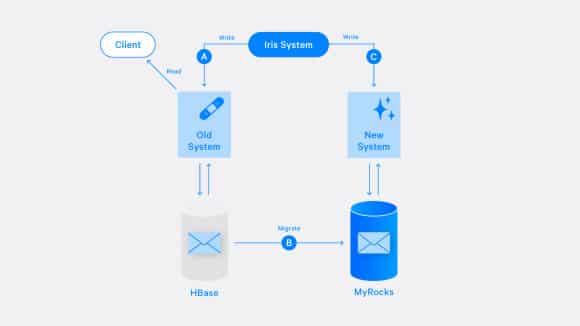Facebook has announced a huge overhaul to their Messenger application (which over a billion people currently use) with a range of improvements, including a modernization of their storage service to make it faster and more efficient. This update will also make it much easier to upgrade the app with new features.

Here`s a rundown of the major changes:
- redesigned and simplified the data schema, created a new source-of-truth index from existing data, and made consistent invariants to ensure that all data is formatted correctly.
- moved from HBase, an open source distributed key-value store based on HDFS, to MyRocks, Facebook's open source database project that integrates RocksDB as a MySQL storage engine.
- moved from storing the database on spinning disks to flash on our new Lightning Server SKU.
Facebook reports quite a long list of improvements as a result, including a more responsive product with better functionality (e.g., a mobile content search feature), improved system resiliency and reduced latency. The company also claims that it has also allowed them to decrease their storage consumption by a whopping 90%.
The switch to MyRocks from HBase enabled some very useful benefits for Facebook, as they can now use their new Lightning Server SKU (the Open Compute Project) to serve data housed in flash storage rather than relying on traditional spinning HDDs. Moreover, because the replication topology for MySQL is more compatible with how Facebook data centers operate in production, they can eliminate a number of physical replicas of data and produce better availability and disaster recovery.
Facebook also claims that this migration to MyRocks also makes adding features to Messenger a lot more seamless. This includes launching a message content search feature on the mobile app, something that would have been very difficult to do using HBase as it is I/O bound. Moreover, with this update, Messenger now uses the established Facebook search infrastructure, which is built via MySQL.
Expect Facebook to announce more updates more frequently in the future.




 Amazon
Amazon